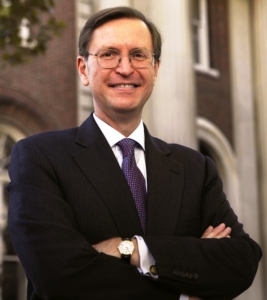Columbia Business School Dean Glenn Hubbard is predicting that an increasing number of people will get their MBAs via executive programs in the future.
In an interview with PoetsandQuants, Hubbard said that the increasing costs of a traditional two-year MBA are making EMBA programs a far more attractive option—even though corporate sponsorship money for employees in executive programs has substantially declined in recent years.
“I am really worried about the opportunity costs of getting a full-time MBA,” said Hubbard, who has been dean of Columbia Business School since 2004. “When I think about what is the world like 20 years from now, I think many fewer people will get a traditional MBA. But that doesn’t mean they won’t get an MBA because it’s very important to go to a good school. I think EMBA programs will really grow.”
BRINGING THE LESSONS FROM A SATURDAY CLASS TO WORK ON MONDAY
Hubbard acknowledges that increases in tuition and relatively stable starting salaries for MBA graduates of full-time, two-year programs have lowered the return on investment of the degree. “That is why I am a big fan of EMBA programs because the biggest part of the cost of a full-time program isn’t the tuition,” he says. “It’s the foregone income. EMBA solves that. And it has a sense of immediacy. When you are in an EMBA program, you can take what you learned on Saturday and bring it to work on Monday. So there is a real feedback loop you just don’t have in the full-time program.”
Columbia is one of the biggest players in the EMBA market, with some 750 current students in five different programs that each cost $161,280 in total tuition and fees. The offerings include a newly launched EMBA-Americas version, which meets approximately once a month in a weeklong block format primarily in New York. During the first year of the 20-month-long program, students have weeklong class blocks in Silicon Valley, Toronto, and Sao Paulo.
The first cluster of some 50 students entered the EMBA-Americans program which is aimed to attract candidates from California, the south and Latin America, according to Hubbard. The school launched the program after announcing that it would discontinue a partnership EMBA program Columbia had with UC-Berkeley’s Haas School, which is now recruiting students for its own standalone program.
COLUMBIA WAS WORRIED ABOUT NOT HAVING A BIG ENOUGH PRESENCE IN CALIFORNIA
Hubbard said the EMBA-Americans option had been under consideration before the decision to end the Berkeley partnership. “It was on our boards anyway but in some sense it is in the fact that we were worried about not having a big enough presence in California,” he said. “With Berkeley-Columbia, we obviously had a big one. But with EMBA-Americas, about a third of the applicant pool is coming from out here (California) so it is getting exactly what we wanted.”
The school also has a Saturday EMBA program that meets weekly on Saturdays over 24 months beginning in May, with the exception of holidays and breaks. And then there are also EMBA partnerships with London Business School and the University of Hong Kong.
“We have always been big in EMBA but we started with a conventional program based in New York City where you come Friday and Saturday every other weekend,” added Hubbard. “But the sea change that is happening is that more and more people aren’t getting help from their employers. When I started, the vast bulk of EMBA students were sponsored. That is just the opposite. For us, it’s about 40% instead of 80% and that number is just going to keep going down.






Questions about this article? Email us or leave a comment below.